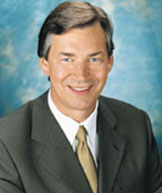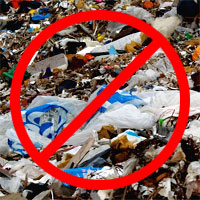
News |
- Environment Still a Priority For Canadians
- Investors Stimulate Climate Actions
- CEC Concludes Emissions Investigation
- Premier/Ambassador Doer Adopts Climate Stance
- Enbridge Pipeline Faces New Challenges
- Ontario Landfill Put on Hold
- Encyclopedia of Life Grows
- Husky Receives Funding for Manitoba Plant
- Herbicide Found in US Drinking Water
- Manitoba Hydro Debt Causes Concerns
- Grass River Park Logging Road Licensed
- Kimberly-Clark to Protect Forests
| Environment Still a Priority For Canadians | 11 September 09 |
 A recent Canadian Press – Harris/Decima survey found 74 percent of the 1000 Canadians surveyed say the government is not doing enough and want more action on environmental issues. A recent Canadian Press – Harris/Decima survey found 74 percent of the 1000 Canadians surveyed say the government is not doing enough and want more action on environmental issues.
Harris-Decima vice president Jeff Walker said the results are surprising considering more than 400,000 jobs have been lost since October of 2008. Despite real concerns about the economy, 73 percent of respondents said they were personally making an effort to be more environmentally conscious. The new poll also reveals 67 percent of Canadians think the environment should not be put on the backburner while governments tackle current economic problems "In contrast to prevailing views that environmental efforts recede in a recession, Canadians continue to integrate environmentally sustainable behaviours into their lives, and overwhelmingly believe much more can and should be done," said Walker. View Canadian Press Harris-Decima PollsView August 23, 2009 Canadian Press article View August 24, 2009 Zero Carbon article View August 25, 2009 National Union of Public and General Employees article View August 25, 2009 Edmonton Sun article Sources: The Canadian Press, Zero Carbon Canada |
|
 Print version Print version |
Top |
| Investors Stimulate Climate Actions | 11 September 09 |
 Investor activism is encouraging companies to address climate change. During 2009, investors in the US and Canada filed 68 shareholder resolutions to force action on reducing emissions and lowering risks from climate change. Investor activism is encouraging companies to address climate change. During 2009, investors in the US and Canada filed 68 shareholder resolutions to force action on reducing emissions and lowering risks from climate change.Ceres, a leading coalition of investors and environmental groups, coordinated the 2009 Climate Change Proxy Season of shareholder filings along with the Interfaith Centre on Corporate Responsibility. The groups found that of the 68 resolutions, 31 were withdrawn after companies agreed to positive climate-related commitments. The more a company is doing to combat climate change the less risk for investors. "Investor pressure is prompting more companies to see the value of making their businesses climate-friendly," said Mindy Lubber, president of Ceres. "By measuring and lowering the carbon footprint of their operations and products, these companies will have a distinct advantage as the global economy shifts to cleaner energy sources." View Highlights from the 2009 Climate Change Proxy Session (PDF)View August 24, 2009 Ceres article View August 24, 2009 ClimateBiz article View August 12, 2009 Reuters article View August 27, 2009 Environmental Finance article Sources: Ceres, Climate Biz, Reuters |
|
 Print version Print version |
Top |
| CEC Concludes Emissions Investigation | 11 September 09 |
 Manitoba Clean Environment Commission (CEC) public meetings and investigation into air emissions from the Louisiana-Pacific (LP) Oriented Strandboard (OSB) plant have concluded. The CEC public meetings were held July 28 & 29, 2009 in Swan River, Manitoba and written submissions were accepted until September 1, 2009. Manitoba Clean Environment Commission (CEC) public meetings and investigation into air emissions from the Louisiana-Pacific (LP) Oriented Strandboard (OSB) plant have concluded. The CEC public meetings were held July 28 & 29, 2009 in Swan River, Manitoba and written submissions were accepted until September 1, 2009.
In March 2009, the Minister of Conservation directed the CEC to conduct an investigation and hold public meetings to consider LP's request to permanently shut down oxidizers (RTOs), which reduce air emissions from the plant. Important issues raised during the hearings:
The CEC will produce a report on its investigation with recommendations for the Minister of Conservation as to permanently decommissioning the RTOs should be granted. Visit CEC webpage Louisiana-Pacific's OSB Plant Air Emissions proposalView Manitoba Wildlands' comments on OSB Plant Air Emissions proposal View Manitoba Wildlands webpage for LP investigation View June 9, 2009 Manitoba Wildlands news items View July 22, 2009 Manitoba Wildlands news items  Download Manitoba Wildlands' September 1, 2009 comments on Louisiana-Pacific's Oriented Strandboard Plant Air Emissions proposal Download Manitoba Wildlands' September 1, 2009 comments on Louisiana-Pacific's Oriented Strandboard Plant Air Emissions proposal  (PDF) (PDF)Source: Manitoba Wildlands, Manitoba Clean Environment Commission |
|
 Print version Print version |
Top |
| Premier/Ambassador Doer Adopts Climate Stance | 4 September 09 |
 Before any public knowledge that outgoing NDP Manitoba Premier would soon be Canada's Ambassador to the US Gary Doer changed his 'policy' on climate change. Before any public knowledge that outgoing NDP Manitoba Premier would soon be Canada's Ambassador to the US Gary Doer changed his 'policy' on climate change. In his speech to the August 2009 national NDP convention in Halifax, Nova Scotia Mr. Doer (who was the first Canadian government leader to endorse the Kyoto Protocol), outlined his new position for the Copenhagen global climate change agreement. While talking about reducing greenhouse gas emissions being "a good thing" Mr. Doer went on to say, "And whether it is the World Trade Organization, the Canada-US trading relationship or the issues of trade in Copenhagen, it will be very important that we do not have a 'Trojan Horse' that eliminates jobs in North America and jobs in Canada in the guise of Climate Change because India and China are not scoped in on an equal basis." This argument was traditionally used by the Bush administration – and continues to be supported by Canada's current government. Canada and the US continue to advocate that China and India take on binding emission cuts despite no binding emission reductions in North American climate policy. View Gary Doer's August 14, 2009 speech at NDP conventionView August 31, 2009 TheStar.com article View August 29, 2009 Ottawa Citizen article View September 8, 2009 The Globe and Mail article View September 11, 2009 Planet Ark article Source: YouTube |
|
 Print version Print version |
Top |
| Enbridge Pipeline Faces New Challenges | 4 September 09 |
 The U.S. State Department has issued a Presidential Permit to Enbridge Energy Ltd, for the controversial Alberta Clipper pipeline that will run from Canadian oilfields in Alberta, across northern Minnesota to Enbridge terminal in Superior, Wisconsin. The U.S. State Department has issued a Presidential Permit to Enbridge Energy Ltd, for the controversial Alberta Clipper pipeline that will run from Canadian oilfields in Alberta, across northern Minnesota to Enbridge terminal in Superior, Wisconsin.The $3.3 billion pipeline will stretch 1,600 kilometers and carry about 450,000 barrels of oil a day. Environmental organizations are launching a lawsuit claiming the permit does not take into account indirect and cumulative impacts, greenhouse gas emissions, and refining impacts. Leech Lake Band in Minnesota stands to be the most affected by the pipeline. A group of Leech Lake tribal members have collected nearly 700 signatures on a petition to hold a referendum on the agreement to allow the line through 64 kilometers of tribal land. "If they vote against the agreement, the pipeline route would have to go around the boundaries of the Leech Lake Reservation, which would require a new Environmental Impact Study, plus other permits including a new Presidential Permit," said Marty Cobenais of the nonprofit Indigenous Environmental Network. View August 21, 2009 Dirty Oil Sands articleView September 1, 2009 TradingMarkets article View August 24, 2009 Fort McMurray Today article View August 27, 2009 The Globe and Mail article View August 24, 2009 EcoFactory article View September 3, 2009 Earthjustice article View September 3, 2009 The New York Times article Sources: Dirty Oil Sands, Trading Markets, Eco Factory |
|
 Print version Print version |
Top |
| Ontario Landfill Put on Hold | 4 September 09 |
 A controversial landfill site expected to open this fall has been put on hold after citizens argued garbage leachate would contaminate the Alliston aquifer. The large pristine underground reservoir stretches from Georgian Bay to the Oak Ridges Moraine. A controversial landfill site expected to open this fall has been put on hold after citizens argued garbage leachate would contaminate the Alliston aquifer. The large pristine underground reservoir stretches from Georgian Bay to the Oak Ridges Moraine.Simcoe County Council voted 22-10 in favor of imposing a one-year moratorium on the 20-hectare dump. Known as Site 41, it is located in Tiny Township northwest of Barrie, Ontario. The site was originally selected in the 1980s, and approved in 2007. Local residents, politicians, and First Nations were victorious after setting up camp at Site 41 and barricading the entrance gates to workers. Activists attracted support from Ralph Nader, Maude Barlow and David Suzuki. Ontario Environment Commissioner Gordon Miller has stated that if the decision taken today, the Alliston aquifer would never have been chosen as a dumpsite. The moratorium will allow for public hearings and an independent scientific assessment of the model used to grant the landfill permit. Visit Stop Dump Site 41View August 25, 2009 TheStar.com View August 28, 2009 The Globe and Mail article View August 25, 2009 CTV article View August 27, 2009 The Globe and Mail article Sources: The Star, The Globe and Mail, CTV |
|
 Print version Print version |
Top |
| Encyclopedia of Life Grows | 4 September 09 |
 An online encyclopedia aims to describe each of the 1.8 million known plant and animal species on the earth. Launched in 2007, the "Encyclopedia of Life" is based at the Smithsonian Institute in Washington and already contains 170,000 species entries. An online encyclopedia aims to describe each of the 1.8 million known plant and animal species on the earth. Launched in 2007, the "Encyclopedia of Life" is based at the Smithsonian Institute in Washington and already contains 170,000 species entries.The goal is to create a tool to assist researchers and policymakers to better understand biodiversity, patterns of plants and animal behavior. Close to 2 million people from more than 200 countries have contributed to the website. The project is likely to cost $100 million and has recently received $12.5 million from private foundations. Users can contribute a photograph or observation and experts will verify all submissions. The encyclopedia will help scientists understand the impacts of global warming on biodiversity and the movement of species to cooler climates. Visit Encyclopedia of LifeView August 25, 2009 Associated Free Press article View August 24, 2009 Planet Ark article View August 31, 2009 The Daily Tell article View August 23, 2009 Chicago Tribune article Sources: Associated Free Press, Planet Ark |
|
 Print version Print version |
Top |
| Husky Receives Funding for Manitoba Plant | 27 August 09 |
 The Government of Canada announced up to $72.8 million in operating subsidies for Husky Energy's ethanol plant in Minnedosa, Manitoba through the ecoENERGY Biofuels program. The Government of Canada announced up to $72.8 million in operating subsidies for Husky Energy's ethanol plant in Minnedosa, Manitoba through the ecoENERGY Biofuels program.The program is intended to stabilize the Canadian renewable fuel industry and stimulate the local economy. Canada will invest up to $1.5 billion over nine years in biofuel production and has already signed contribution agreements with 23 companies. While debate continues about ethanol produced from grain generating less greenhouse gas emissions than gasoline on a life-cycle basis, Husky shifted to mostly imported corn for the Minnedosa plant. Canada will require 5 percent renewable fuel content in gasoline by 2010 and 2 percent in diesel by 2011. Husky's Minnedosa fuels facility has been operating since 1980 and in 2007 expanded production capacity from 10 million to 130 million liters of ethanol per year. Hog producers in Canada and the US fear ethanol development will force farmers to import grain, and corn, raising feed prices. Grain and corn prices worldwide have increased due to ethanol production. View August 26, 2009 Planet Ark articleView August 25, 2009 CanadianDriver article View August 25, 2009 Manitoba Cooperator article View August 24, 2009 NRCAN news release View August 20, 2009 Manitoba Cooperator article View August 19, 2009 Reuters article Sources: NRCAN, Planet Ark, Rueters |
|
 Print version Print version |
Top |
| Herbicide Found in US Drinking Water | 27 August 09 |
 A widely-used herbicide has been found to exceed federal safety limits in US drinking water. The chemical atrazine, banned in the European Union, may be associated with birth defects, low birth rates and menstrual problems. A widely-used herbicide has been found to exceed federal safety limits in US drinking water. The chemical atrazine, banned in the European Union, may be associated with birth defects, low birth rates and menstrual problems.Farmers and golf courses have used atrazine for decades. In Illinois, Indiana, Ohio and Kansas yearly average levels of atrazine were at least ten times the federal standard yet the US Environmental Protection Agency failed to inform residents. EPA officials said atrazine is not a health hazard but a new report by Natural Resources Defense Council says adverse reproductive effects of atrazine have been seen in amphibians, mammals and humans, even at low levels of exposure. The report states 75 percent of stream water and 40 percent of all groundwater samples from agricultural areas contained atrazine. NRDC recommends phasing out atrazine and implementing more effective monitoring. View Natural Resources Defense Council reportView August 24, 2009 Huffington Post article View August 25, 2009 Earth Portal article View August 24, 2009 WaterTech Online article View August 22, 2009 New York Times article Sources: NRDC, New York Times, Common Dreams |
|
 Print version Print version |
Top |
| Manitoba Hydro Debt Causes Concerns | 27 August 09 |
 Manitoba Hydro lost $443 million last year and has accumulated a debt load of more then $7.6 billion, prompting the Provinces Auditor General to review the Crown corporation's debt levels, drought risk and other liabilities. Manitoba Hydro lost $443 million last year and has accumulated a debt load of more then $7.6 billion, prompting the Provinces Auditor General to review the Crown corporation's debt levels, drought risk and other liabilities.A formal whistleblower complaint made months ago under the new Public Interest Disclosure Act prompted the audit. Auditor General Carol Bellringer will examine management practices that identify, measure and monitor risk at Manitoba Hydro. The Manitoba Public Utilities Board has raised serious concerns over the company's ambitious $18 billion construction plans to build Conawapa and Keeyask dams, plus a high voltage transmission power line along the west side of Lake Manitoba. Hydro President Bob Brennan says he is not worried by the audits. He says the public utility is managing risks well while keeping rates among the lowest in North America. The Hydro audits will probably not be competed until next year. View August 11, 2009 CBC News articleView August 19, 2009 MySteinbach.ca article View August 12, 2009 Winnipeg Free Press article View August 15, 2009 Portage Online article View Manitoba Hydro's Annual Report for the year ending March 31, 2009 Sources: Winnipeg Free Press, CBC |
|
 Print version Print version |
Top |
| Grass River Park Logging Road Licensed | 21 August 09 |
 Despite concerns from citizens and environmental organizations, the Manitoba government has issued an environmental licence for a logging road that will bisect Grass River Park in north western Manitoba. The road also bisects zones in the park that are closed to logging, awaiting decisions for permanent protection from industrial activities. Despite concerns from citizens and environmental organizations, the Manitoba government has issued an environmental licence for a logging road that will bisect Grass River Park in north western Manitoba. The road also bisects zones in the park that are closed to logging, awaiting decisions for permanent protection from industrial activities.Recent actions by the Manitoba government contradict this decision. In June 2009 the government proclaimed the ' No Logging in Parks ' Bill, as a set of Amendments to the Forest Act. And the Manitoba government has declared woodland caribou an endangered species under Manitoba's Endangered Species Act (MESA). The MESA includes ability to protect habitat for listed species.The Grass River Park contains government documented woodland caribou migration routes, wintering and calving areas. The logging road bisects these caribou areas. The logging road is to transport fibre to Tolko's Kraft mill in the Pas. Company sources indicate the road will save time, and money compared to existing routes via the park to the mill. Tolko supported the Amendments Act to ban logging in Manitoba parks during legislative hearings. Manitoba Wilderness Committee, Manitoba Wildlands, the leader of The Manitoba Liberal Party, and the leader of The Manitoba Greens presented together at a press conference in downtown Winnipeg Wednesday, August 19, 2009. Speakers indicated this decision adds risk to the boreal forest environment, woodland caribou, the integrity of the park and the credibility of Manitoba Conservation. Media reports, and maps are linked below. View Grass River Provincial Park - Proposed Road and Wildlife MapView Grass River Provincial Park - Proposed Road and Closed Areas Map View August 19, 2009 CBC article View August 19, 2009 Winnipeg Free Press article View August 20, 2009 Winnipeg Free Press article Sources: Winnipeg Free Press, CBC |
|
 Print version Print version |
Top |
| Kimberly-Clark to Protect Forests | 19 August 09 |
 Kimberly-Clark, one of the world's largest paper products manufacturers says by 2011, 40 percent of its North America tissue fiber will either be from recycled sources, or certified by the Forests Stewardship Council (FSC). Kimberly-Clark, one of the world's largest paper products manufacturers says by 2011, 40 percent of its North America tissue fiber will either be from recycled sources, or certified by the Forests Stewardship Council (FSC).Kimberly-Clark pledged to get its wood fiber for brands including Kleenex, Scott and Cottenelle from environmentally responsible forests. The products will feature the FSC label on their packaging starting September 2009. FSC standards are globally recognized as the highest in forestry. Greenpeace helped design the company's new sourcing rules and said it would end its nearly five-year campaign against the company clear cutting in Canada's boreal forest. "Canada's boreal forest is the largest ancient forest left in North America," said Richard Brooks of Greenpeace Canada. "Though vast, already 60 percent is allocated to logging companies. Less than 10 percent of Canada's boreal forest is permanently protected." View August 5, 2009 Greenpeace articleView August 6, 2009 Reuters article View August 13, 2009 PR Newswire View August 5, 2009 Green Inc. article View August 19, 2009 New Brunswick Business Issue article View August 5, 2009 Common Dreams article View November 25, 2004 Manitoba Wildlands news item View June 20, 2005 Manitoba Wildlands news item View August 30, 2006 Manitoba Wildlands news item View December 5, 2006 Manitoba Wildlands news item Sources: Planet Ark, PR News Wire, New York Times |
|
 Print version Print version |
Top |


 RSS Feeds:
RSS Feeds: